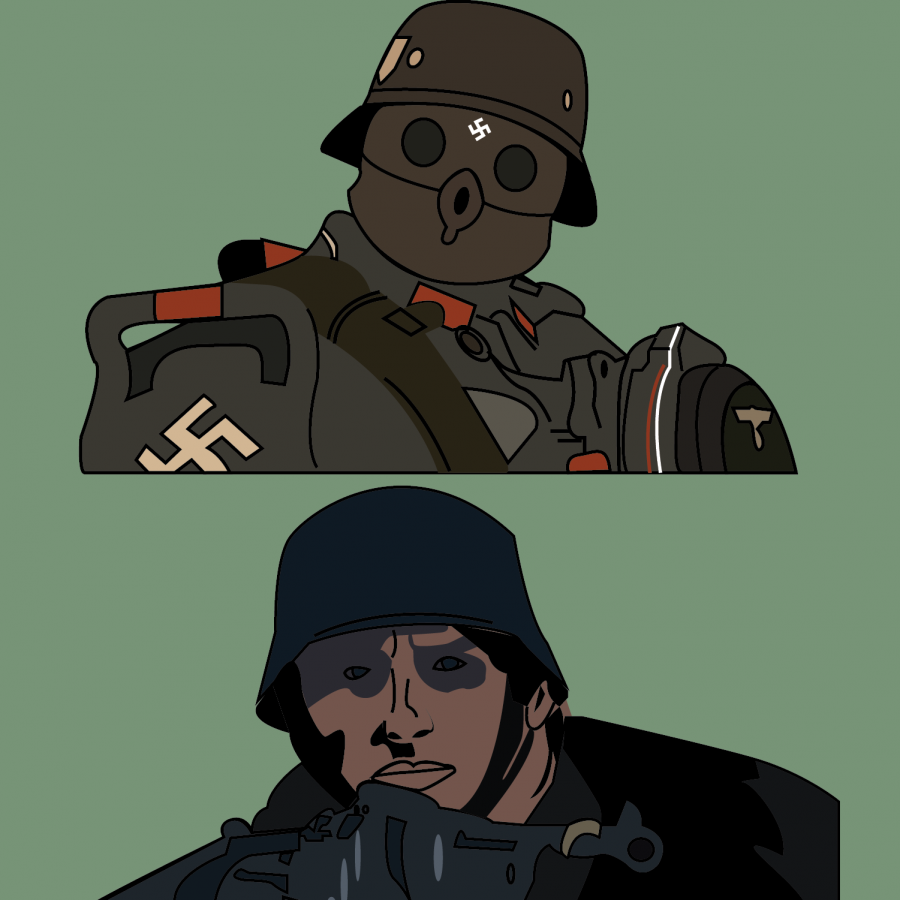‘Battlefield 1’ trivializes tragedy
Oct 1, 2018
After four years and over 35 million dead, the Western world swallowed a bitter peace in 1918 so that World War I may indeed be the “war to end all wars.”
A hundred years later, in 2018, as former enemies in Europe affirm their friendship with parades and exhibitions, Swedish game developer EA DICE is slapping a limited-time discount on the premier World War I experience, available for only $6. Yet, despite its lush graphics, immersive first-person gameplay and a stunning score of nine out of 10 on IGN, “Battlefield 1” cannot hide itself as a lousy, over-the-top apocalyptic shootout throwing history into the dustbin.
While complaints exist about the game’s ridiculous exaggerations — soldiers clad in heavy armor sweeping the battlefield with terminator-style automatic weapons and vintage vehicles rolling around like hot-rods — “Battlefield 1” has its main fault in its failure to grasp the inherent tragedy of World War I.
Anyone who has played first-person shooters set in “World War II” should know that we almost never play as Nazis. Such games as “Call of Duty: World War I” and the “Wolfenstein” series both involve your typical American hero plowing his way through armies of Nazis. We simply don’t get to see the war through the eyes of Nazis because it is ingrained in our culture that they are evil incarnate.
Besides, nothing satisfies our desire for heroism more than virtually squeezing the trigger on these ruthless people, all the while fighting a righteous crusade to save humanity from oppression and genocide.
Get The Daily Illini in your inbox!
“Battlefield 1” followed suit. All six single-player campaigns unfold around men from the Allied Powers, and Germans or Austro-Hungarians almost always show up as faceless enemies in helmets and gas masks (such attributes can even be modified as cosmetics in the multiplayer arena).
By booting the Central Powers from the story, “Battlefield 1” had no idea of the history it toyed with. Unlike World War II, World War I didn’t have the narrative of good versus evil, only one of senseless carnage between people who were no different from each other.
“We could be brothers,” mourned Paul, a German soldier in the 1979 film “All’s Quiet on the Western Front,” as he removed the coat from his French counterpart who slowly succumbed to his wounds. Night and day, men blinded by such illusions as empire and manhood slaughtered each other in the trenches, only to find out they were exactly the same without the uniform and the helmet.
Germans in World War I were not Nazis — only people obeying orders and trying to make it through the day. Yet “Battlefield 1” successfully made these men into hordes of cold-blooded killers who would stop at nothing to get to the player. What happened to “But behind every gunsight is a human being,” proclaimed with such gravity by the narrator in the game’s opening cinematic, as though it’s not hypocritical enough?
Should we really play a game forcing us to have fun killing people who are just like us? Of course. That is the fundamental mechanics behind a multiplayer arena. If we abandon “Battlefield 1” for the aforementioned reason, then we might as well give up all multiplayer shooters.
But rest assured, infantrymen in 1918 didn’t fight in their couch, munching chips and mashing buttons.






